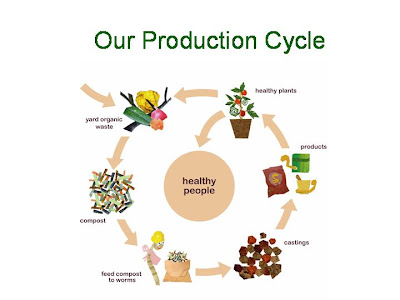SF: Pioneers of food composting
San Francisco was the first major city in the United States to offer citywide composting of food scraps. It started with a pilot program in 1996 and has become the model for the nation. Every residence and business in the city will be expected to have 3 different color-coded bins to separate their trash: blue for recyclables, green for compostables, and black for the remaining trash. Residences and businesses that cannot comply with the mandate can write the city a note explaining why it is unfeasible.
San Francisco was the first major city in the United States to offer citywide composting of food scraps. It started with a pilot program in 1996 and has become the model for the nation. Every residence and business in the city will be expected to have 3 different color-coded bins to separate their trash: blue for recyclables, green for compostables, and black for the remaining trash. Residences and businesses that cannot comply with the mandate can write the city a note explaining why it is unfeasible.
Ultimately though, the city has a goal of zero waste by 2020.
http://abclocal.go.com/kgo/story?section=news/assignment_7&id=6740645
http://inhabitat.com/san-francisco-mandates-recycling-composting/
Other Countries
"In Edmonton, Canada, the city government achieved 90 percent diversion of waste from landfills - the highest in North America - by adopting a simple method of residential waste classification and separation. Edmonton operates a dry waste-recycling center that separates and sends materials directly to markets. "Everything else" is largely treated through composting, biofuel development and power generation. Edmonton has significantly reduced waste disposal in landfills without incineration and successfully shut down a traditional landfill.
The biogas process is a closed biological process without oxygen where organic matter is converted to biogas (methane and carbon dioxide) by microorganisms. The biogas process is a natural process with bacteria from nature.
Composting
Composting is an important strategy for managing discarded resources. By avoiding the collection and burying of yard trimmings in landfills, energy is saved. Less materials put out at the curb means fewer trips to the landfill by collection trucks, and less activity by the large earth moving tractors at the landfill.
Worm composting or Vermiculture
Worm composting is a method for recycling food waste into a rich, dark, earth-smelling soil conditioner. The great advantage of worm composting is that this can be done indoors and outdoors, thus allowing year round composting. It also provides apartment dwellers with a means of composting. In a nutshell, worm compost is made in a container filled with moistened bedding and redworms. Add your food waste for a period of time, and the worms and micro-organisms will eventually convert the entire contents into rich compost.
http://inhabitat.com/san-francisco-mandates-recycling-composting/
Other Countries
"In Edmonton, Canada, the city government achieved 90 percent diversion of waste from landfills - the highest in North America - by adopting a simple method of residential waste classification and separation. Edmonton operates a dry waste-recycling center that separates and sends materials directly to markets. "Everything else" is largely treated through composting, biofuel development and power generation. Edmonton has significantly reduced waste disposal in landfills without incineration and successfully shut down a traditional landfill.
Taipei in Taiwan province, too, has achieved remarkable results in waste separation and recycling over a period of more than 10 years. Beginning in 1996, Taipei implemented a household waste separation policy and a "Keep Waste off the Ground" campaign, with waste management vehicles collecting all types of waste already separated by households at a fixed time every day. By 2009, residential waste had decreased from 2,970 tons to 1,009 tons a day, a reduction of more than 67 percent. Recycling has exceeded 45 percent, and the amount of waste transported to landfills in Taipei has reduced from its peak of 2,500 tons to only 59 tons a day."
Biogas
Composting
Composting is an important strategy for managing discarded resources. By avoiding the collection and burying of yard trimmings in landfills, energy is saved. Less materials put out at the curb means fewer trips to the landfill by collection trucks, and less activity by the large earth moving tractors at the landfill.
Worm composting or Vermiculture
Worm composting is a method for recycling food waste into a rich, dark, earth-smelling soil conditioner. The great advantage of worm composting is that this can be done indoors and outdoors, thus allowing year round composting. It also provides apartment dwellers with a means of composting. In a nutshell, worm compost is made in a container filled with moistened bedding and redworms. Add your food waste for a period of time, and the worms and micro-organisms will eventually convert the entire contents into rich compost.
In Thailand, there was an experiment about the
capability of earthworm. The result showed that the worm can eliminate the
organic wastes faster than letting these wastes eliminating by themselves 20
times. The organic wastes are included food and vegetable wastes, leafs, and
animal dung. The benefits of using these worms are 1. less dangerous; because
the earthworm can reduce the cause of pathogen increasing. 2. Low investment;
cheap 3. nourishing the soil by using the worm’s dung. 4. Less unpleasant
smell.
However, to compost the waste by using these
worms well is required a balance mix between organic waste (eg. Food waste) and
coconut garbage. The proportion is 60 : 40. Each worm can digest the waste as
much as its weight. So, the bigger the worms are, the more amount they can
digest the waste.





